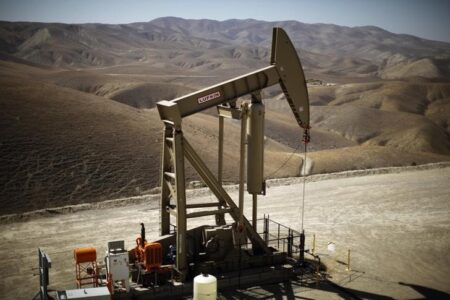Investing.com– Oil prices rose in Asian trade on Wednesday, buoyed by industry data showing an unexpected draw in U.S. inventories, while the OPEC also stuck to its forecast of strong demand growth in the coming years.
expiring in May rose 0.5% to $82.28 a barrel, while rose 0.5% to $77.62 a barrel by 20:16 ET (00:16 GMT).
But despite their recent strength, crude prices remained stuck squarely within a $75 to $85 a barrel trading range, amid middling cues on supply and demand. Economic weakness in top importer China remained a major point of contention for oil markets.
Strength in the , following stronger-than-expected U.S. inflation data, also weighed on crude. But on the other hand, continued disruptions in the Middle East kept risks of potential supply shocks high, limiting any major weakness in crude.
Talks for an Israel-Hamas ceasefire fell through, while Houthi forces continued to attack vessels in the Red Sea.
US inventories unexpectedly shrink- API
Still, U.S. inventory data offered some positive near-term cues to oil markets. showed that inventories shrank by 5.5 million barrels in the week to March 8, compared to expectations for a build of 0.4 million barrels.
The draw came as more local refiners resumed production after an extended winter break, signaling some near-term tightness in U.S. oil markets. But this tightness is expected to remain limited, especially with local fuel demand showing little signs of picking up from a winter lull.
The API data usually heralds a similar reading from , which is due later on Wednesday.
But optimism over smaller U.S. inventories was largely offset by the Energy Information Administration hiking its oil production outlook for 2024, by 260,000 barrels per day to 13.19 million barrels.
OPEC keeps demand forecast, IEA report in focus
On the demand front, the Organization of Petroleum Exporting Countries maintained its forecast that world oil demand will increase by 2.25 million barrels per day in 2024, and by 1.85 million bpd in 2025.
In a , the cartel cited an eventual reduction in interest rates and an improvement in global economic conditions this year as the driving forces behind increased oil demand.
The OPEC had recently said it will maintain its current pace of production cuts until end-June.
Beyond the OPEC, a from the International Energy Administration is also due this week.
Read the full article here












